Home to over 1,300 tropical and subtropical plants, Southeast Botanical Gardens includes a Water Garden where EM Technology keeps lotus ponds clear and healthy.
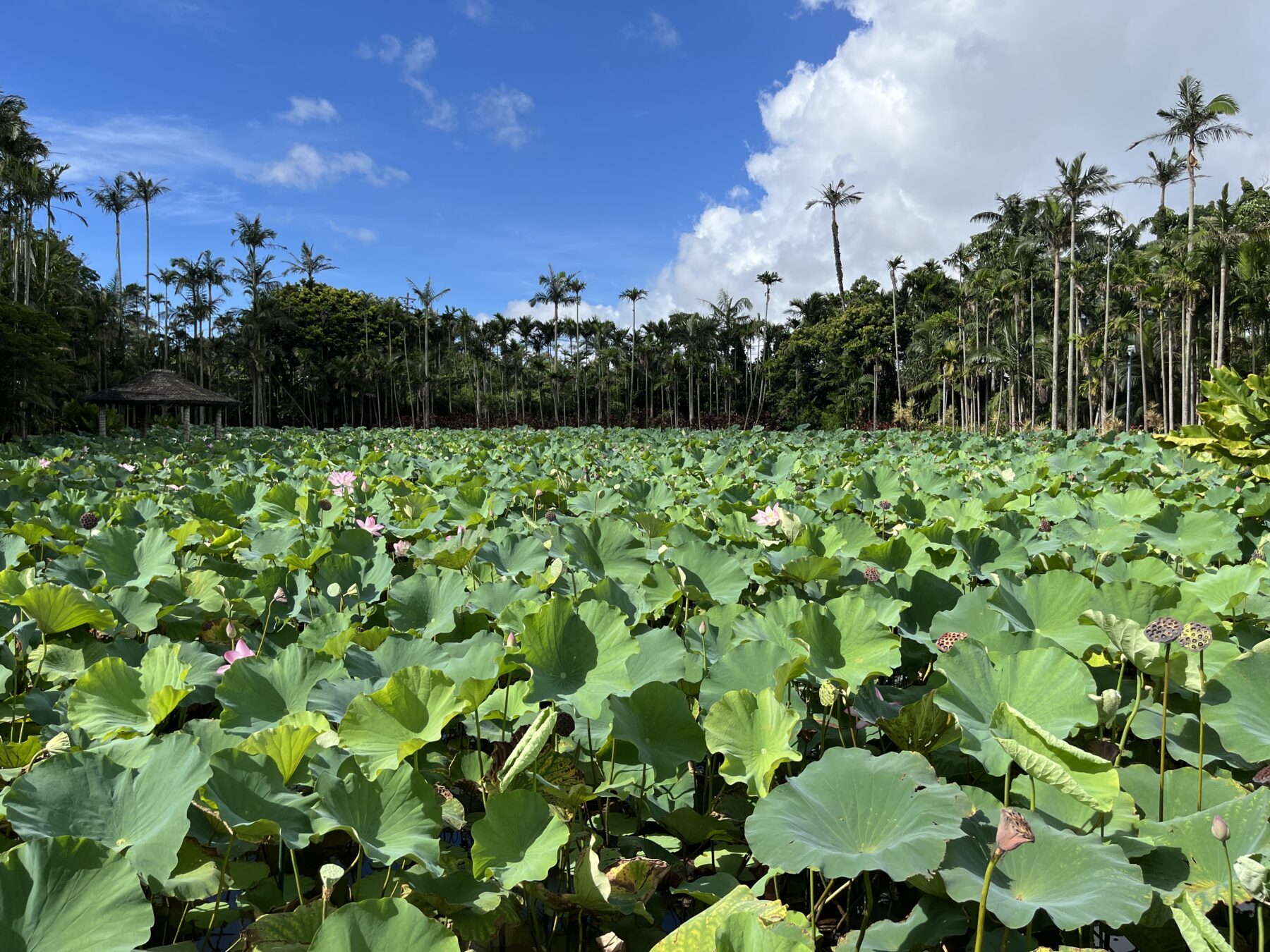
Southeast Botanical Gardens in Chibana, Okinawa City, is one of Japan’s leading botanical gardens, established in 1968. Across its 400,000m² grounds, 1,300–2,000 species of tropical and subtropical plants flourish, along with animal interaction areas featuring capybaras and squirrel monkeys.
The Water Garden higlights seasonal lotus displays and serene waterside scenery.
EM Technology is currently used to manage the water quality of the “Omoiyari”(means Compassion) Pond, helping to maintain a clear and healthy aquatic environment.
This initiative began in 2022 through a collaboration between the director of the botanical gardens and EM Research Organization. Because the lotus pond at Southeast Botanical Gardens is one of the largest in Okinawa Prefecture, the gardens first conducted a trial in a smaller pond from January to June 2023 to evaluate the effectiveness of EM Technology on the lotus growth.
The trial led to excellent results, with improved water quality and healthy lotus blooms.
Based on these findings, full-scale application in the pond began in August 2023.
– Improve Water Clarity: Enhance transparency in the pond to provide visitors with more beautiful waterside scenery.
– Improve the Waterside Environment: Promote the natural decomposition of accumulated organic matter such as lotus leaves, thereby creating an ideal environment for aquatic plants and living organisms.
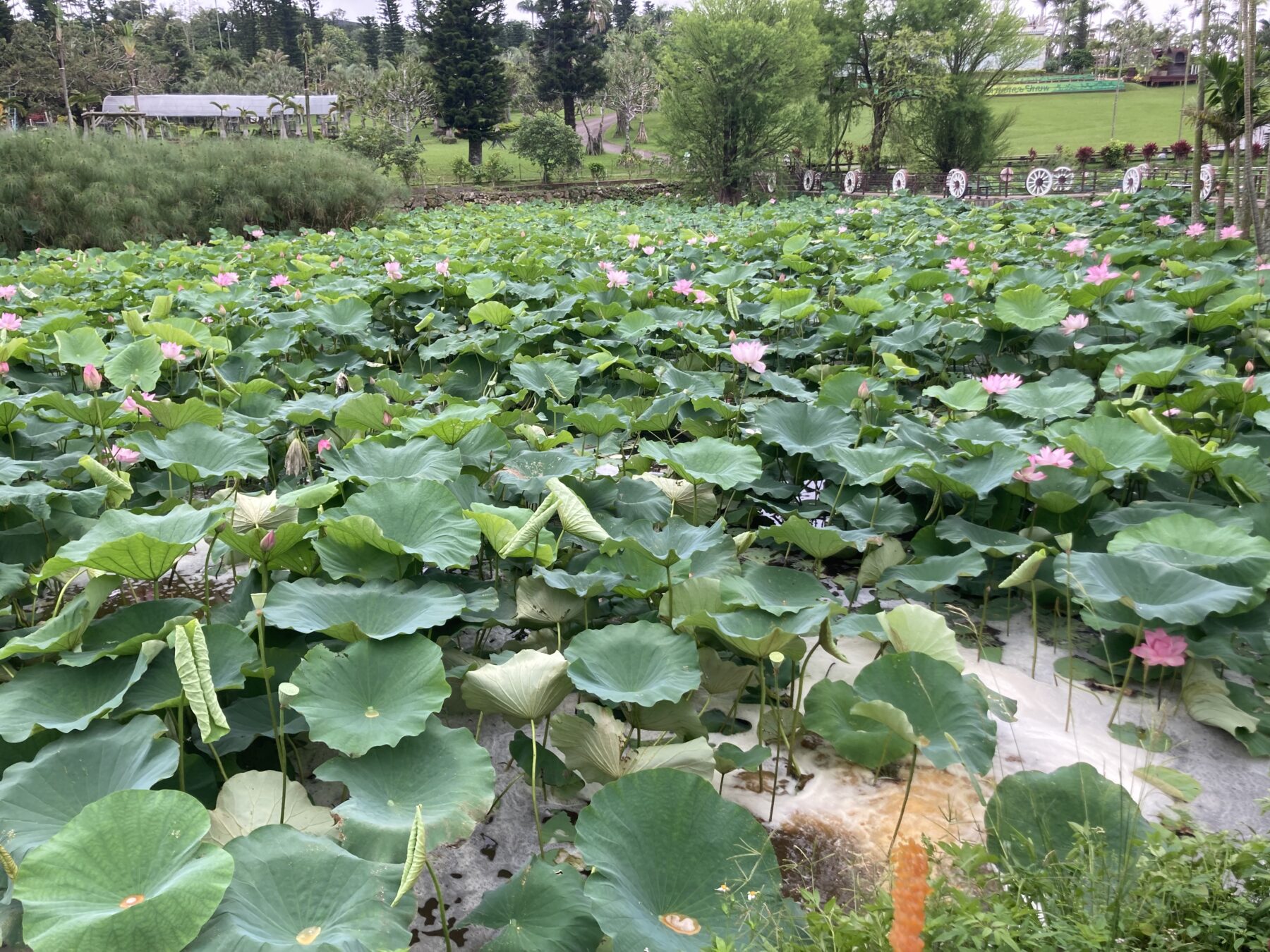
Introducing AEM solution into the lotus pond
– Activated EM・1 (AEM) Solution: Approximately 2,000L are added monthly to the pond (approx. 7,000m² surface area and 1m depth).
– EM Rectification Blocks: 10 EM rectification blocks made from a blend of concrete and carbon materials are installed around the perimeter of the pond.
Since the introduction of EM, the pond has shown remarkable improvement in water quality.
Initially, the gardens assumed that applying 2,000L of AEM per month to such a large pond would not be sufficient and expected results to take 2-3 years.
However, visible improvements were achieved in just 1 year.
Improved Water Clarity: Water transparency has increased significantly. Previously, the pond became murky during autumn and winter due to accumulated lotus leaves, and again in early spring. Since the introduction of EM, the water has remained clear throughout the year.

The measurement limit of the transparency meter is 50cm, so the value is shown as 50cm. However, in reality, the water is clear enough that visibility extends beyond this limit.
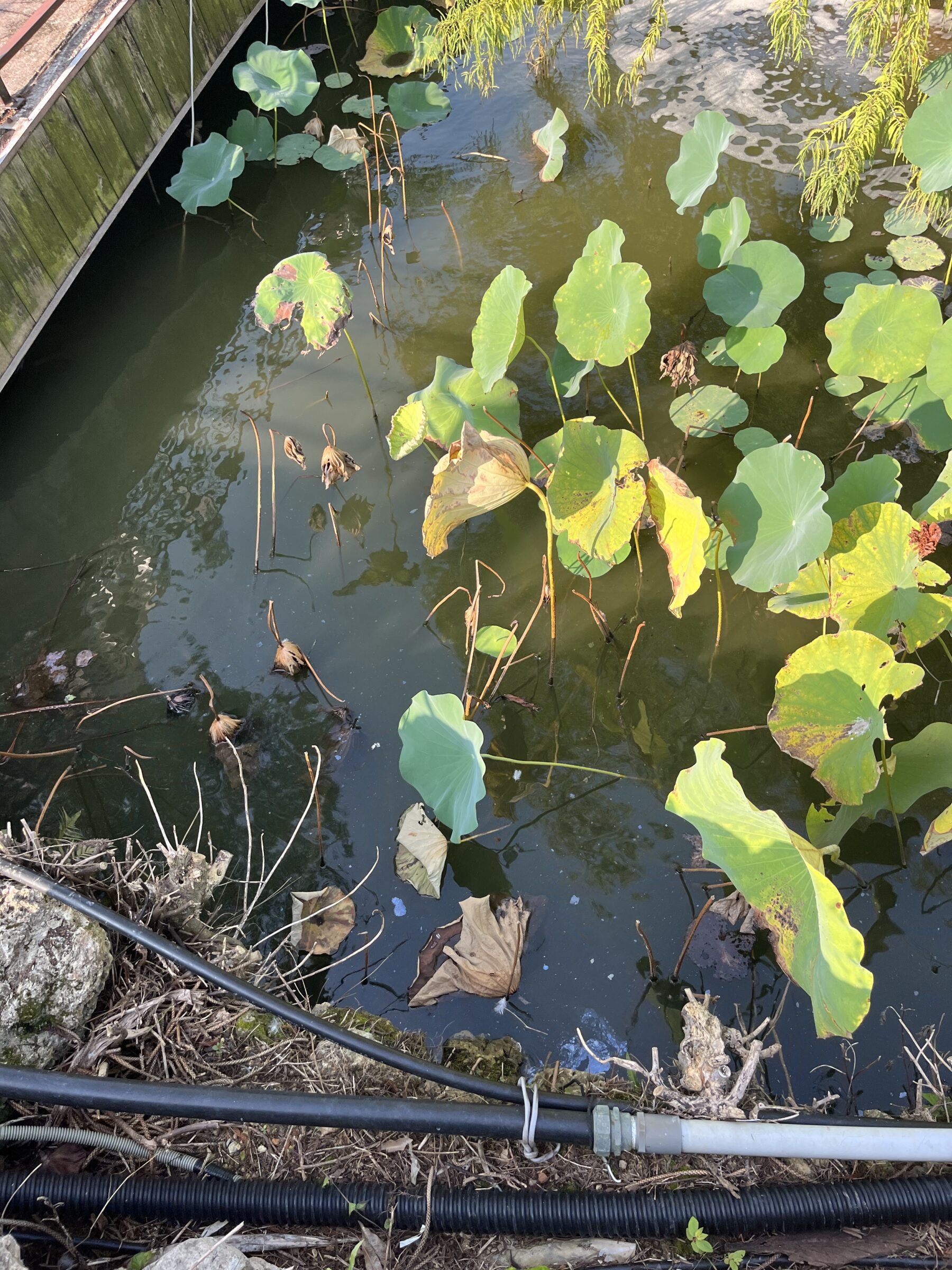
October 2023 — Before EM application: water quality poor and turbid
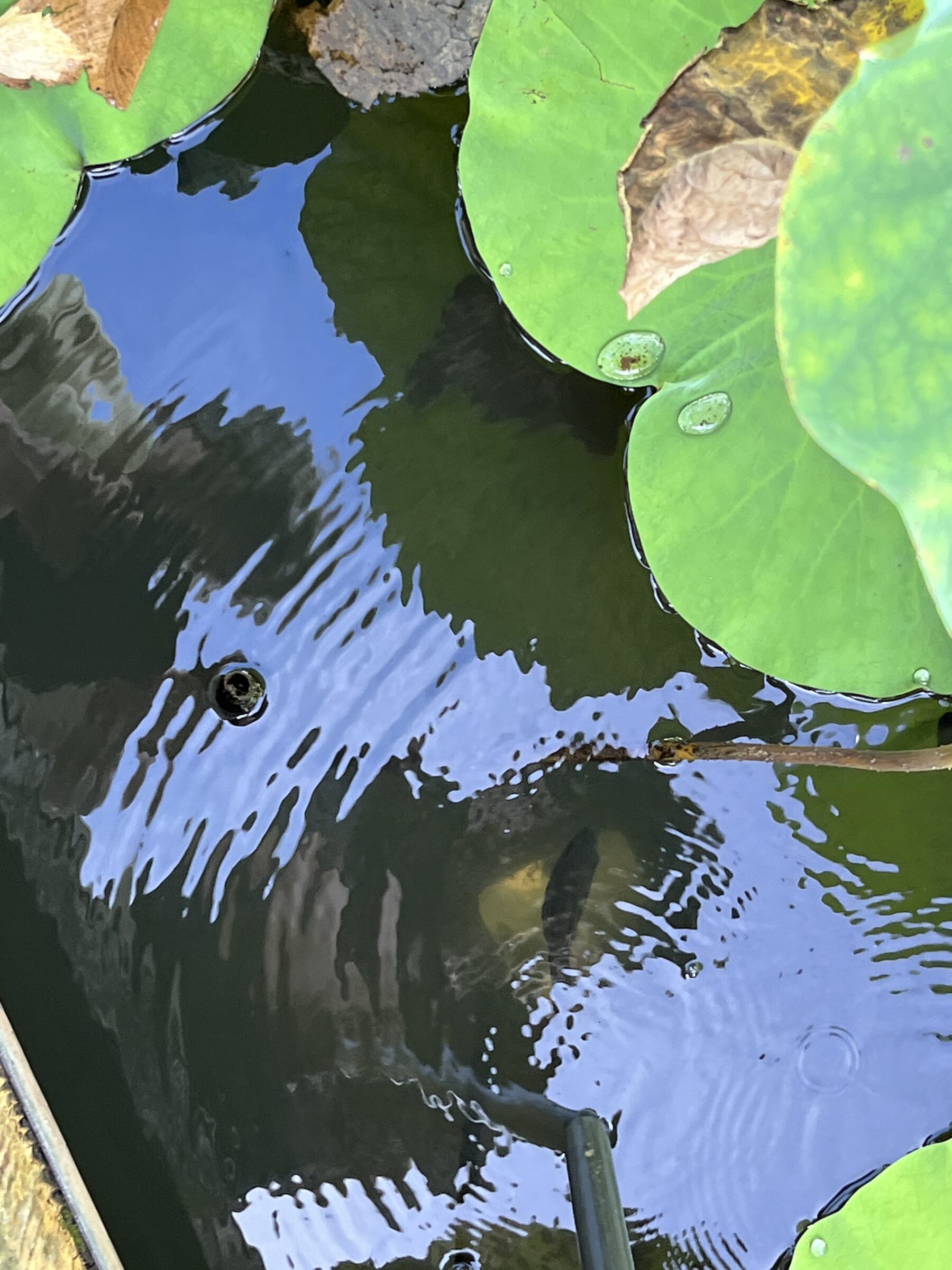
July 2024 — After EM application: pond bottom visible with iron rod submerged, showing increased transparency
– Decomposition of Sludge: Continued use of EM is expected to accelerate the breakdown of sludge accumulated at the pond bottom.
– Enhanced Lotus Growth: The improved environment has already led to lotus leaves growing upright, allowing them to capture more sunlight and increase photosynthetic efficiency. Based on prior EM-based flower cultivation results, EM is known to promote more flower buds, stronger flower color, and a longer flowering period. It is expected that the pond will continue to produce even healthier and more beautiful lotus flowers as water and bottom conditions improve.
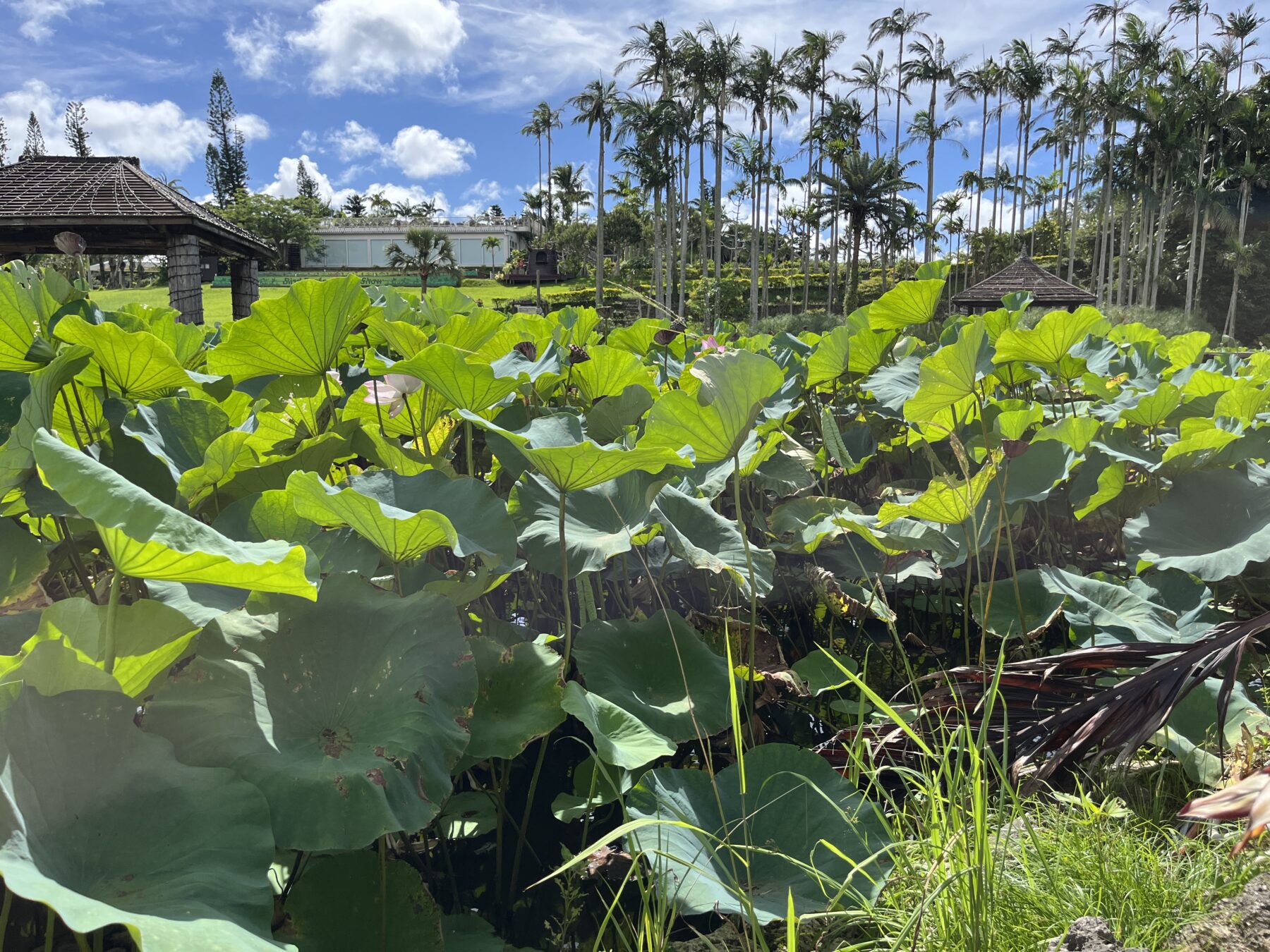
Healthy lotus leaves standing upright and absorbing abundant sunlight
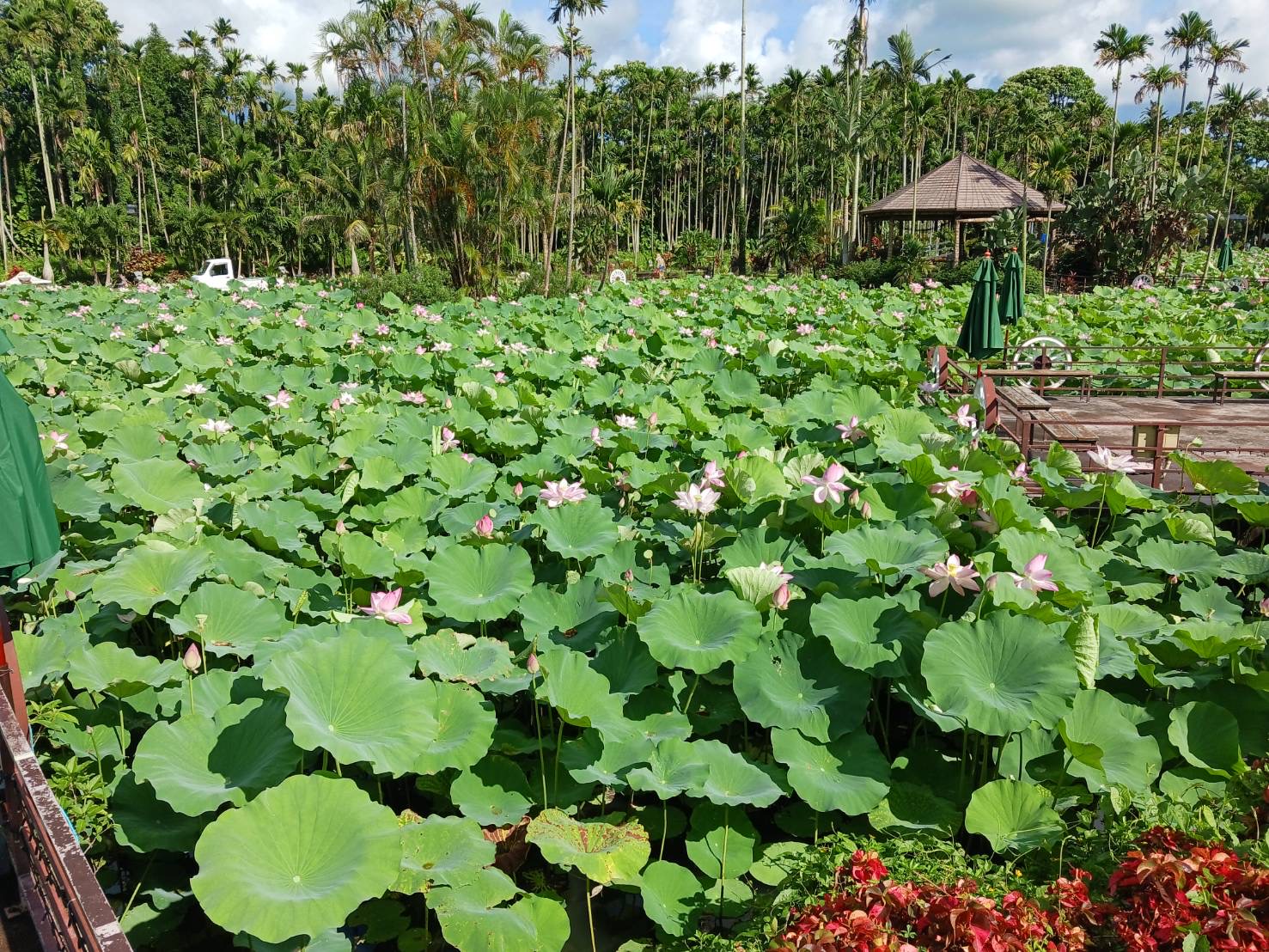
June 2025 — Lotus flowers in full bloom
2025.10.21 Updated